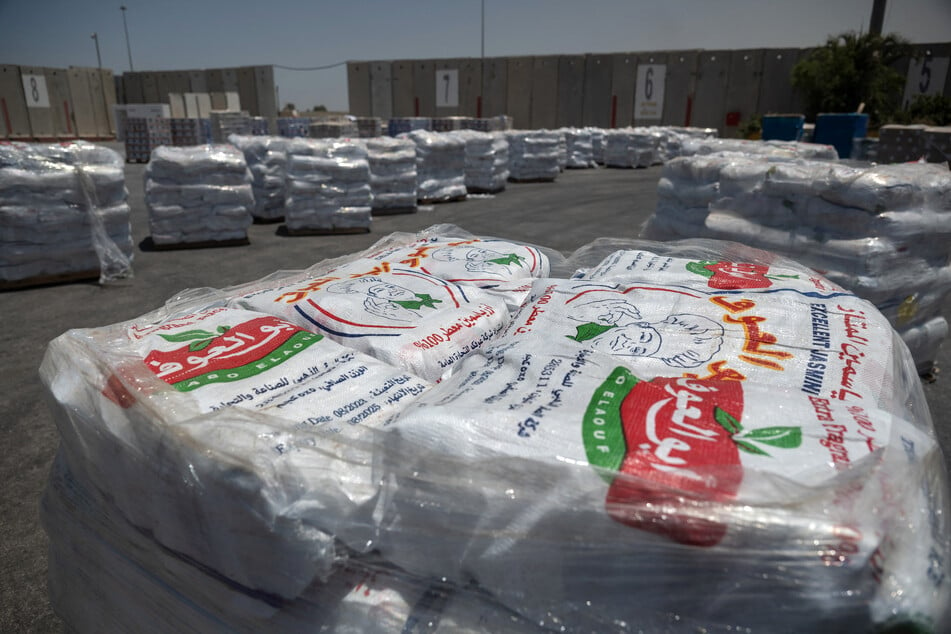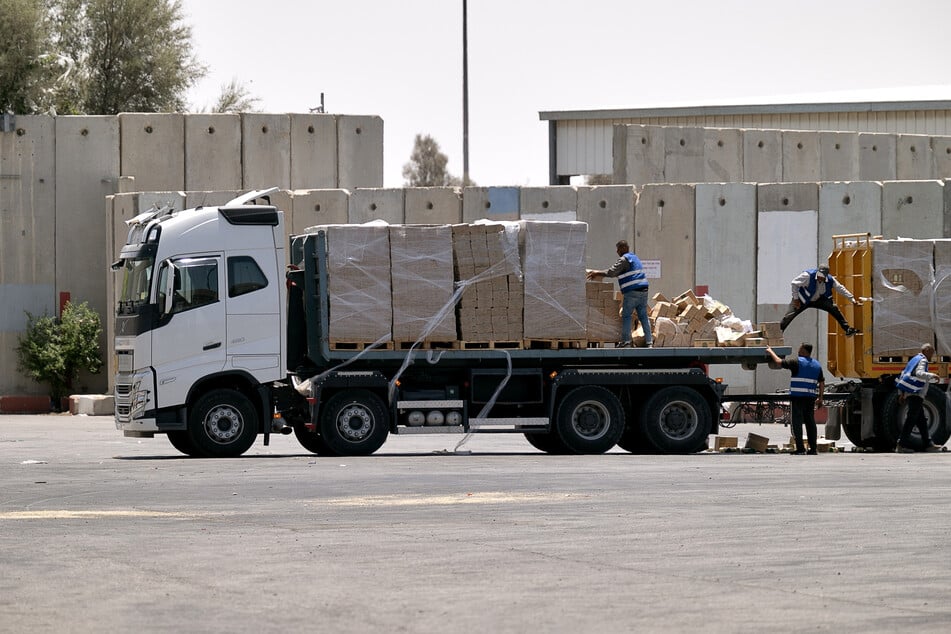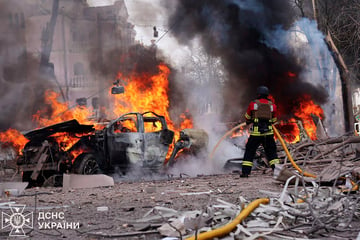Food piles up at Gaza crossing in scorching heat as aid agencies and Israel trade blame
Jerusalem, Israel - Days after Israel announced a daily pause in fighting on a key route to allow more aid into Gaza, chaos in the besieged Palestinian territory has left vital supplies piled up and undistributed in the searing summer heat.

More than eight months of war, sparked by Hamas's unprecedented October 7 attack on Israel, have led to dire humanitarian conditions in the Gaza Strip and repeated UN warnings of famine with outside aid severely restricted.
Desperation among Gaza's 2.4 million population has increased as fighting rages, sparking warnings from aid agencies that they are unable to deliver aid including vegetables.
Israel says it has let supplies in and called on agencies to step up deliveries.
"The breakdown of public order and safety is increasingly endangering humanitarian workers and operations in Gaza," the United Nations Office for the Coordination of Humanitarian Affairs, also known as OCHA, said in a briefing late Friday.
"Alongside the fighting, criminal activities and the risk of theft and robbery has effectively prevented humanitarian access to critical locations."
But Israel says it has allowed hundreds of trucks of aid into southern Gaza, trading blame with the United Nations over why the aid is stacking up.
It shared aerial footage of white and black containers lined up on the Gazan side of the Kerem Shalom crossing and more trucks arriving to add to the stockpile.
Israel and United Nations blame one another for Gaza aid disruptions

With civil order breaking down in the territory, the UN says it has been unable to pick up any supplies from Kerem Shalom since Tuesday, leaving crucial aid in limbo.
A deputy UN spokesman this week said the crossing "is operating with limited functionality, including because of fighting in the area."
Israel's coordinator for civilian affairs in the Palestinian territories, known as COGAT, said Thursday "the content of 1,200 aid trucks awaits collection by UN aid agencies," saying a lack of distribution was responsible.
Earlier in the week, COGAT spokesman Shimon Freedman told reporters at the crossing the daily pause on a southern road into Gaza was designed to allow the UN "to collect and distribute more aid" alongside an Israeli military presence.
He said most of the aid had not moved because "organizations have not taken sufficient steps to improve their distribution capacity."
Aid agencies have instead pointed to Israel's offensive on the southern city of Rafah, which pushed out more than a million people and closed a border crossing with Egypt, as a deepening humanitarian crisis hampered relief efforts.
The US also sanctioned an extremist Israeli group last week, accusing it of blocking convoys and looting and burning trucks trying to deliver humanitarian aid to Palestinian civilians in Gaza.
And the UN food agency has said its aid convoys have been looted inside Gaza by "desperate people."
As both sides stall, it is the civilians in Gaza who are paying the price.
Cover photo: Ahikam SERI / AFP

